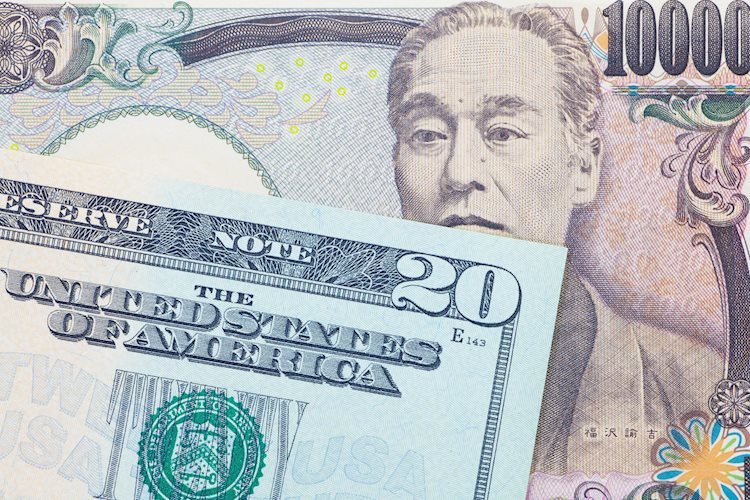
USD/JPY holds below 158.00 after Tokyo CPI inflation data
- UK inflation, November 2024
- The Fed is set to cut rates again despite inflation rise. Here’s why.
- UK Inflation Jumps to Eight-Month High Amid Fears of Stagflation
- US equity funds receive big inflows on cool inflation, funding bill, and holiday rally
- President Erdoğan expects lower inflation, more rate cuts in 2025
- USD/JPY loses momentum to around 157.75 in Friday’s early Asian session.
- Tokyo CPI rose 3.0% YoY in December vs. 2.6% prior.
- Fed signaled a slower pace of rate cuts, which might underpin the US Dollar.
The USD/JPY pair loses traction to near 157.75 during the early Asian session on Friday. The Japanese Yen (JPY) edges higher after the Tokyo Consumer Price Index (CPI) inflation data. Trading volumes are likely to be low ahead of the next week’s New Year holiday.
Bạn đang xem: USD/JPY holds below 158.00 after Tokyo CPI inflation data
Data released by the Statistics Bureau of Japan on Friday showed that the headline Tokyo CPI inflation climbed to 3.0% YoY in December from 2.6% in November. Meanwhile, the Tokyo CPI ex Fresh Food, Energy arrived at 2.4% YoY in December versus 2.2% prior. The Tokyo CPI ex Fresh Food rose 2.4% YoY in December against 2.5% expected and up from 2.2% in November. The reading is likely to keep the Bank of Japan (BoJ) on track for a January interest rate hike.
BoJ Governor Kazuo Ueda said last week that the central bank expects the Japanese economy to move closer to sustainably achieving the BoJ’s 2% inflation target next year. “The timing and pace of adjusting the degree of monetary accommodation will depend on developments in economic activity and prices as well as financial conditions going forward,” said Ueda.
Xem thêm : Russia struggles to tame inflation in ‘overheating’ war economy
On the USD’s front, the expectation of fewer rate cuts by the US Federal Reserve (Fed) could support the Greenback in the near term. The Fed cut interest rates by a quarter point in the December meeting and projected just two rate cuts in 2025, down from its original forecast for four.
Japanese Yen FAQs
The Japanese Yen (JPY) is one of the world’s most traded currencies. Its value is broadly determined by the performance of the Japanese economy, but more specifically by the Bank of Japan’s policy, the differential between Japanese and US bond yields, or risk sentiment among traders, among other factors.
One of the Bank of Japan’s mandates is currency control, so its moves are key for the Yen. The BoJ has directly intervened in currency markets sometimes, generally to lower the value of the Yen, although it refrains from doing it often due to political concerns of its main trading partners. The BoJ ultra-loose monetary policy between 2013 and 2024 caused the Yen to depreciate against its main currency peers due to an increasing policy divergence between the Bank of Japan and other main central banks. More recently, the gradually unwinding of this ultra-loose policy has given some support to the Yen.
Over the last decade, the BoJ’s stance of sticking to ultra-loose monetary policy has led to a widening policy divergence with other central banks, particularly with the US Federal Reserve. This supported a widening of the differential between the 10-year US and Japanese bonds, which favored the US Dollar against the Japanese Yen. The BoJ decision in 2024 to gradually abandon the ultra-loose policy, coupled with interest-rate cuts in other major central banks, is narrowing this differential.
The Japanese Yen is often seen as a safe-haven investment. This means that in times of market stress, investors are more likely to put their money in the Japanese currency due to its supposed reliability and stability. Turbulent times are likely to strengthen the Yen’s value against other currencies seen as more risky to invest in.
Nguồn: https://estateplanning.baby
Danh mục: News




